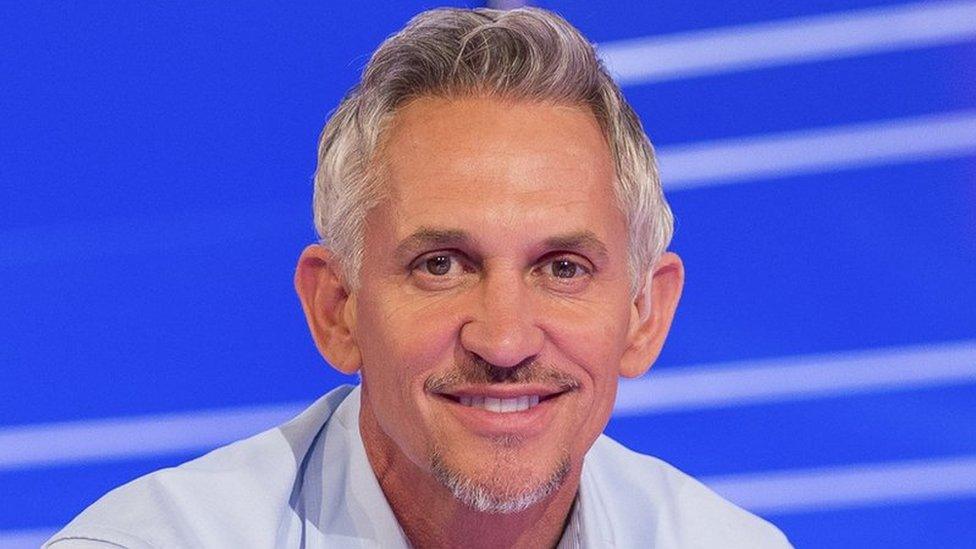Should we talk about pay in the office?
- Published

It was an awkward day for some stars at the BBC after the corporation disclosed, for the first time, how much its top talent is earning.
The list has proved revealing, showing a gender pay gap and a lack of diversity among those in the top pay bracket.
Some of the BBC's biggest earners have reacted with humour to having their pay deals exposed to the public - Gary Lineker wished everyone "Happy BBC salary day" on Twitter.
But fellow TV broadcaster Andrew Marr admitted the revelations would be "uncomfortable", while Radio 4's Today presenter John Humphrys said his £600,000 salary was hard to justify.
But it raises the question, would it be better for everyone's salaries to be public knowledge? Do you really want to know if the person sitting next to you earns more?
Chris Evans tops best-paid BBC stars list
The British attitude to money talk
Talking about money is one of Britain's last taboos. Most people would admit to being curious about how much their colleagues earn, but would never dare to ask.
In fact, according to a study from 2015, Britons are more likely to discuss their sex life than reveal the size of their salary.
University College London researchers, in a survey of 15,000 men and women, discovered that British people are seven times more likely to tell a stranger how many sexual partners they've had, whether they've had an affair, and whether they've ever contracted a sexually-transmitted disease, than have a chat about their income.
Researcher Soazig Clifton said: "They'd tell us about their affairs, all of their partners, they'll tell us all kinds of different things but the one thing they won't tell us is how much they earn."
What happens when colleagues share?
British people may not feel comfortable about talking freely about their pay, but some companies have decided to be completely transparent about staff earnings.
At GrantTree, a company which helps UK firms get government funding, everyone in the organisation knows what everyone else earns.
Andrew Ormerod, a GrantTree director, said he couldn't imagine it any other way.
He told told 5 Live's Wake Up to Money: "I actually find it strange to think about not knowing that.
"And for us it's part of a broader culture of transparency so it actually feels quite strange for me the way that a lot of businesses operate where actually there isn't that level of transparency."
Employees at another company, London-based Pimlico Plumbers, divulged what they were earning as part of a TV show for Channel 4 in 2012.
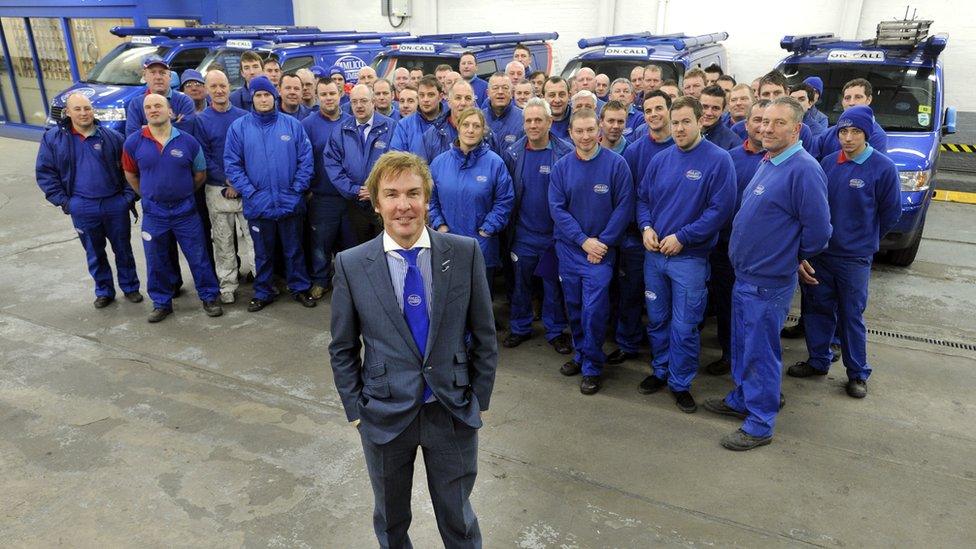
Pimlico Plumbers chief executive Charlie Mullins with some of the staff involved in the TV show
Karl Plunkett, communications director, said it caused "uproar" in the office.
Some call centre workers discovered the newest addition to their team, Ben, earned £3,000 more than them, while one staff member called Mark was shocked to find out he was on £9,000 less than his colleague.
"There were a few rows, some unhappy people - people who found out the person sitting next to them was earning more," said Karl.
But he said it proved beneficial in the long run, getting the company to create a fairer pay structure and boost the pay of people who were lagging behind.
"It wasn't without pain but it has left us in better stead. We still benefit (now) from the fact that there aren't any outrageous secrets."
Does transparency help gender imbalance?
The publication of BBC salaries sparked a debate about the gender pay gap - after it was revealed that just one third of 96 stars earning more than £150,000 are female.
The top seven on the list are all male.
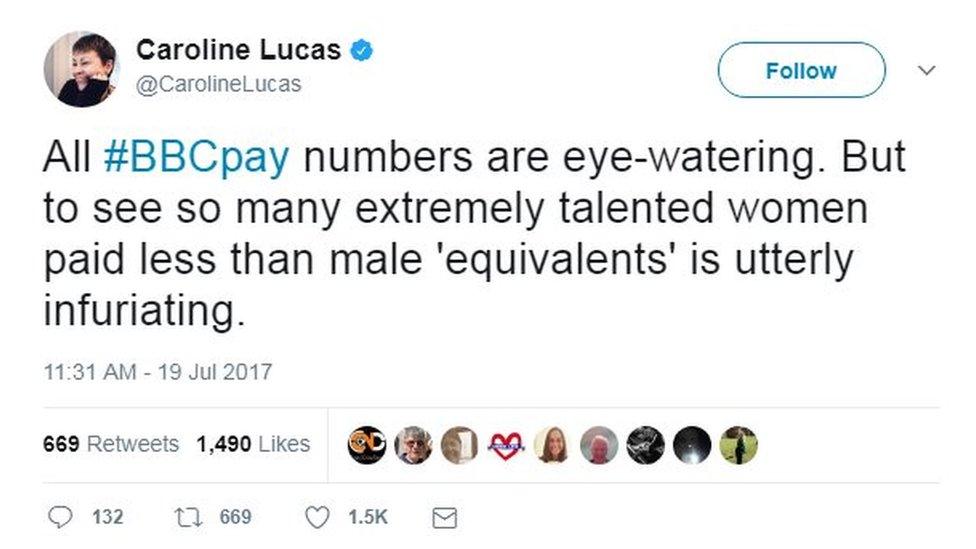
Sam Smethers, chief executive of the Fawcett Society, which campaigns for equal rights for women, says the figures reveal the scale of inequality in the BBC.
"What it shows very clearly is that women are both under-represented and undervalued in those top-earning roles at the BBC, although it's useful having the information published today and we welcome it," she said.
Jane Garvey, who presents Woman's Hour on Radio 4, said women can benefit from the information being in the public domain.
"The cat will not be allowed to get back in the bag," she told Radio 4's PM Programme.
"I actually suspect that a lot of women will be energised by this and will take this opportunity to shout and to make their feelings very clear on the issue of their pay. Let's hope that is what happens."
GrantTree director Andrew Ormerod said having pay disparities out in the open has helped get rid of the gender pay gap at his company.
He said: "It cuts out the gender imbalance. We just don't have a gender pay gap.
"The thing about having transparent salaries is that you're naturally going to ask the question as to why this person is paid a different amount of money and you have got to have a reason."
So should we all divulge our pay packets?
Money may be an awkward topic of conversation, but that isn't the only reason for not shouting about your salary across the office.
As BBC director general Tony Hall has pointed out, comparing pay "is not straightforward".
What you earn can depend on your "role, education or experience" says Seamus Nevin, head of employment and skills policy at the Institute of Directors.
"So making direct comparisons can be difficult," he added.
Dan Walker was listed as earning between £200,000 and £249,999 a year, while his BBC Breakfast co-host Louise Minchin didn't even make the list.
But Dan took to Twitter to clarify, saying he earns the same as Louise for the programme - it is his other BBC commitments in BBC Sport that take his total salary higher.
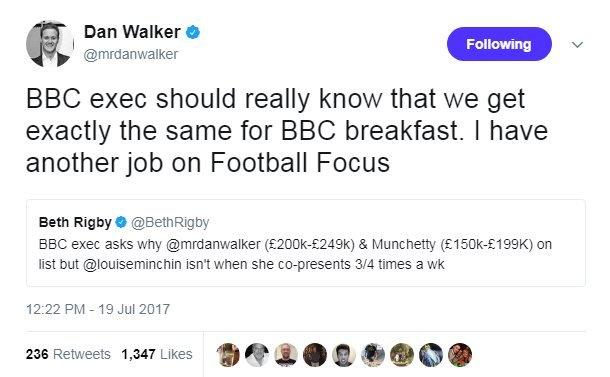
Mr Nevin says knowing you are earning less can create problems in your workplace.
"The problem with talking about pay with colleagues is that it may or may not be reliable information and it can engender bad feelings and poor morale," he said.
"This can prove very unhealthy if it means staff are more concerned about everyone around them instead of the overall objectives of the team."
- Published19 July 2017
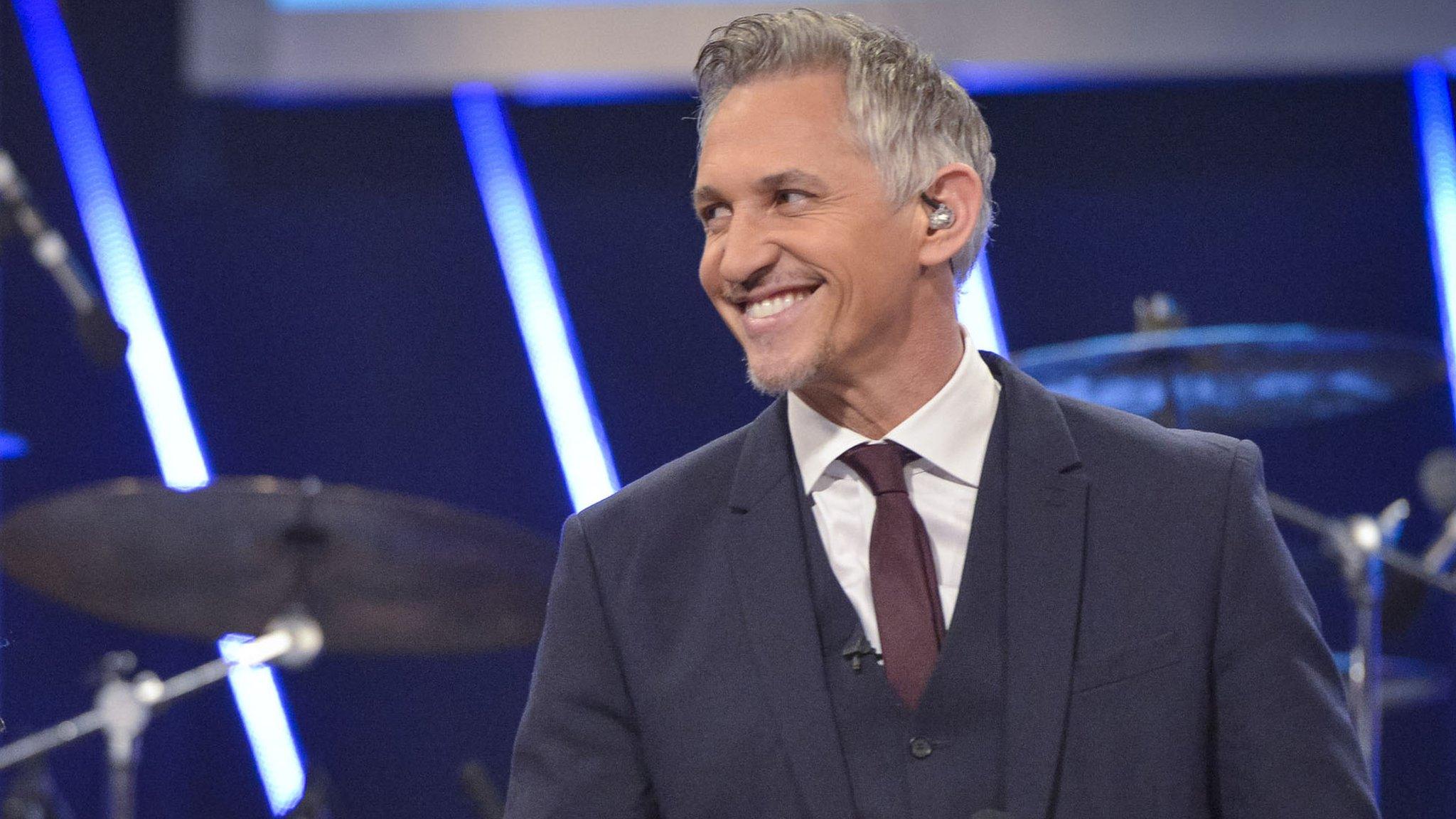
- Published19 July 2017

- Published19 July 2017
